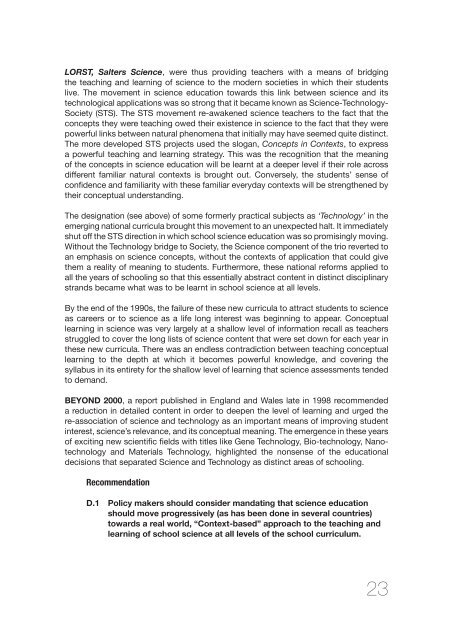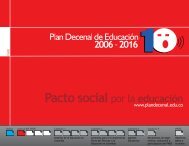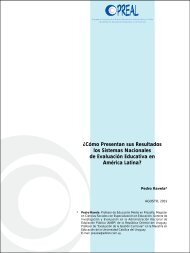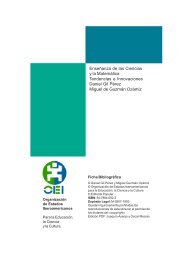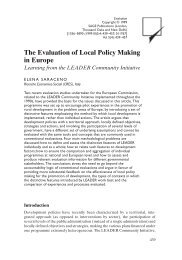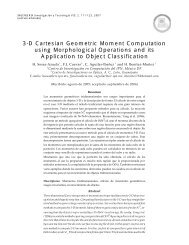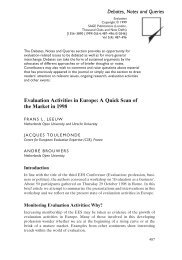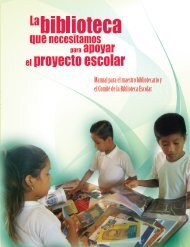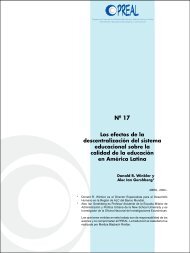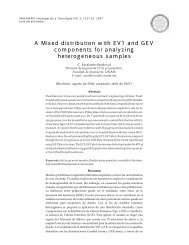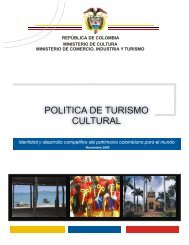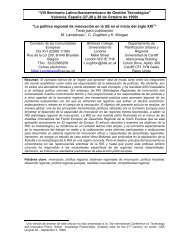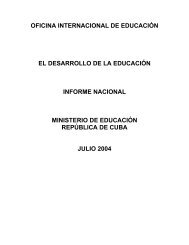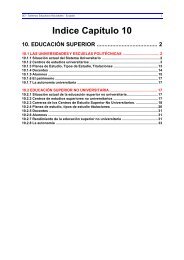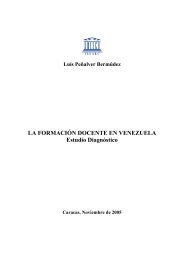Science education policy-making: eleven emerging issues; 2008 - OEI
Science education policy-making: eleven emerging issues; 2008 - OEI
Science education policy-making: eleven emerging issues; 2008 - OEI
Create successful ePaper yourself
Turn your PDF publications into a flip-book with our unique Google optimized e-Paper software.
LORST, Salters <strong>Science</strong>, were thus providing teachers with a means of bridging<br />
the teaching and learning of science to the modern societies in which their students<br />
live. The movement in science <strong>education</strong> towards this link between science and its<br />
technological applications was so strong that it became known as <strong>Science</strong>-Technology-<br />
Society (STS). The STS movement re-awakened science teachers to the fact that the<br />
concepts they were teaching owed their existence in science to the fact that they were<br />
powerful links between natural phenomena that initially may have seemed quite distinct.<br />
The more developed STS projects used the slogan, Concepts in Contexts, to express<br />
a powerful teaching and learning strategy. This was the recognition that the meaning<br />
of the concepts in science <strong>education</strong> will be learnt at a deeper level if their role across<br />
different familiar natural contexts is brought out. Conversely, the students’ sense of<br />
confidence and familiarity with these familiar everyday contexts will be strengthened by<br />
their conceptual understanding.<br />
The designation (see above) of some formerly practical subjects as ‘Technology’ in the<br />
<strong>emerging</strong> national curricula brought this movement to an unexpected halt. It immediately<br />
shut off the STS direction in which school science <strong>education</strong> was so promisingly moving.<br />
Without the Technology bridge to Society, the <strong>Science</strong> component of the trio reverted to<br />
an emphasis on science concepts, without the contexts of application that could give<br />
them a reality of meaning to students. Furthermore, these national reforms applied to<br />
all the years of schooling so that this essentially abstract content in distinct disciplinary<br />
strands became what was to be learnt in school science at all levels.<br />
By the end of the 1990s, the failure of these new curricula to attract students to science<br />
as careers or to science as a life long interest was beginning to appear. Conceptual<br />
learning in science was very largely at a shallow level of information recall as teachers<br />
struggled to cover the long lists of science content that were set down for each year in<br />
these new curricula. There was an endless contradiction between teaching conceptual<br />
learning to the depth at which it becomes powerful knowledge, and covering the<br />
syllabus in its entirety for the shallow level of learning that science assessments tended<br />
to demand.<br />
BEYOND 2000, a report published in England and Wales late in 1998 recommended<br />
a reduction in detailed content in order to deepen the level of learning and urged the<br />
re-association of science and technology as an important means of improving student<br />
interest, science’s relevance, and its conceptual meaning. The emergence in these years<br />
of exciting new scientific fields with titles like Gene Technology, Bio-technology, Nanotechnology<br />
and Materials Technology, highlighted the nonsense of the <strong>education</strong>al<br />
decisions that separated <strong>Science</strong> and Technology as distinct areas of schooling.<br />
Recommendation<br />
D.1 Policy makers should consider mandating that science <strong>education</strong><br />
should move progressively (as has been done in several countries)<br />
towards a real world, “Context-based” approach to the teaching and<br />
learning of school science at all levels of the school curriculum.<br />
23


